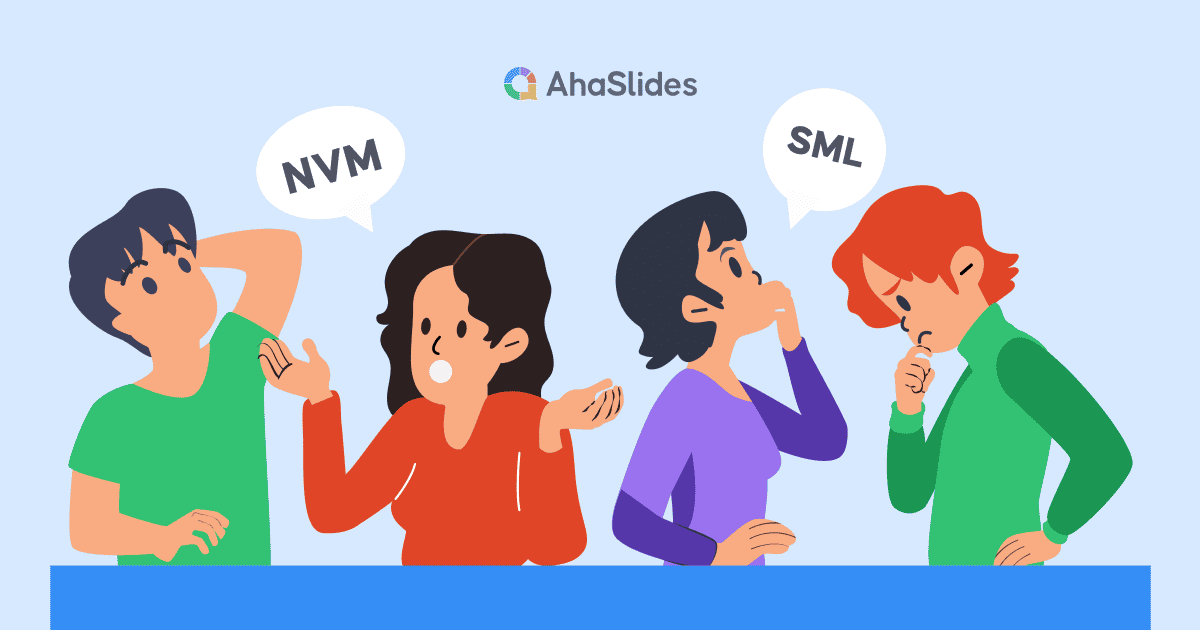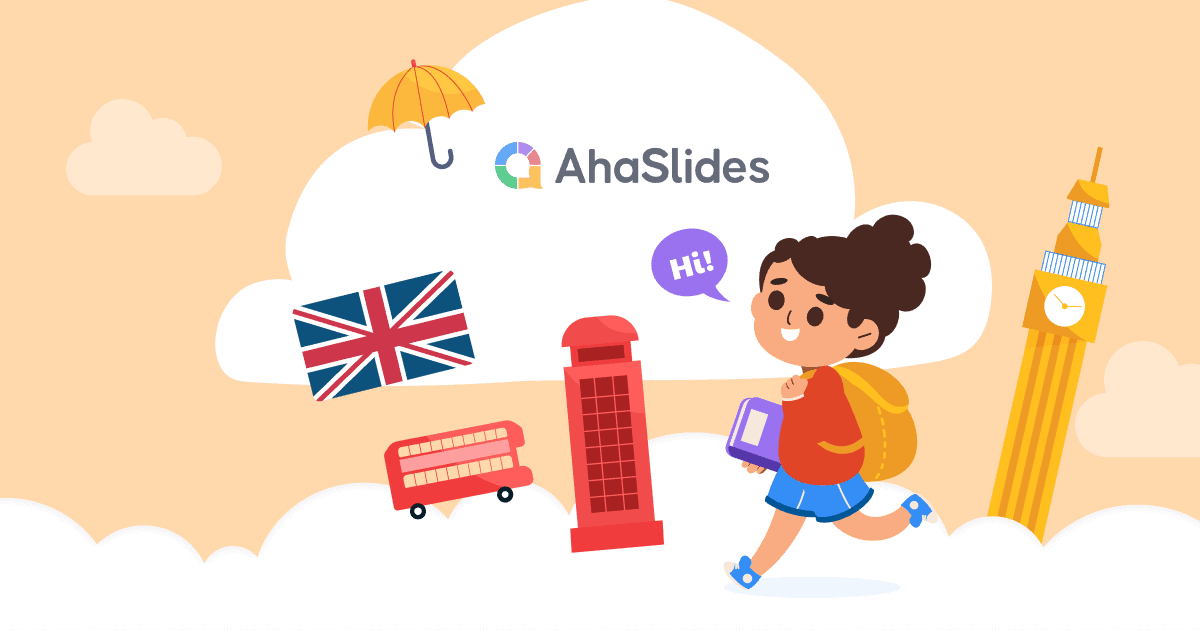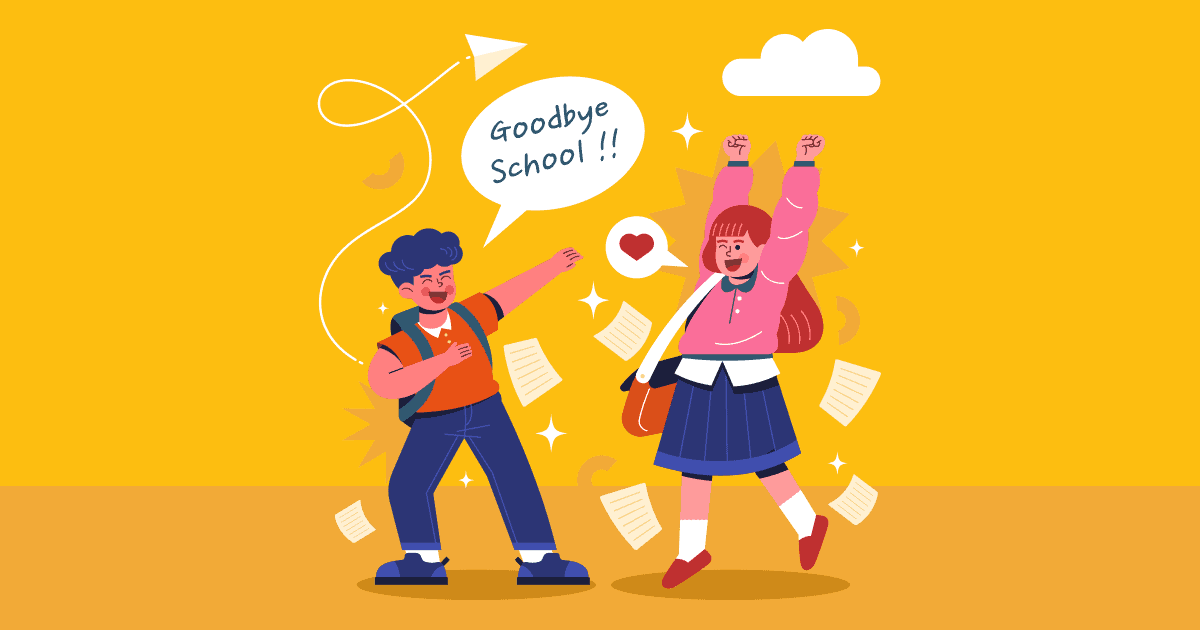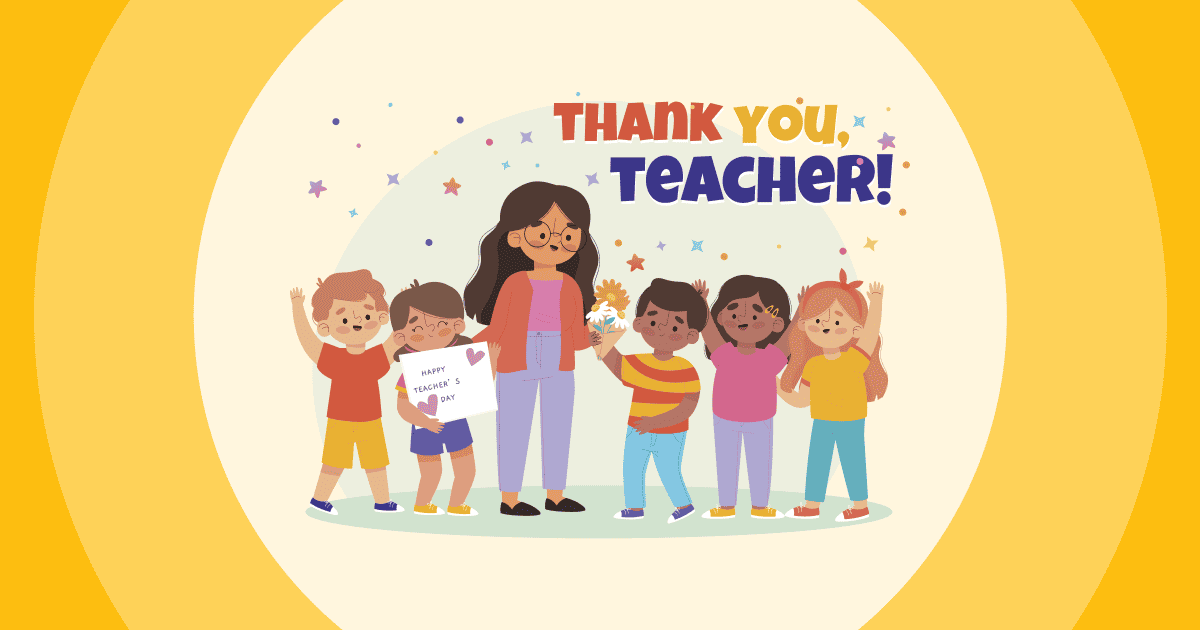Do you find English so hard to learn? You have been learning English for at least a couple of years, even a decade but still cannot speak naturally to or hard to catch native speaker's phrases precisely? There should be a language gap between what you learn in school and real life.
It is a fact that native speakers use English slang words in their conversations so often. A high possibility is that you might focus too much on learning academic vocabulary and miss out on learning famous English slang words.
In this article, we suggest a new learning aspect with Word Cloud to improve your English competency, in particular, English slang words. You will have a chance to access the ultimate list of 119+ most famous English slang words, phrases, their meaning and examples that are used in both America, and England, and some old English slang words, too.
Table of Contents
- Overview
- The Reasons to Learn English Slang Words
- British Slang - English Slang Words
- American Slang Words
- Popular Slang Words
- Trendy Sayings in 2025
- Gen Z Slang
- The Bottom Line
- Frequently Asked Questions

The Reasons to Learn English Slang Words
If you still wonder why learning English Slang words is beneficial, here are the five reasons:
- Fit the new environment and expand relationship networking quickly
- Increasing the rate of accuracy in expression and preventing faux pas and misunderstanding
- Promoting a sense of belonging and having deep ties to culture and traditions
- Learning deep insight into local history and past events
- Presenting personal opinions and evoking emotions a more fresh and meaningful way to deal with any kind of conversation and speech
Teach English Language and Other Subjects with Ease
Use AhaSlides' quiz creator to make ESL quizzes and test students' knowledge engagingly.
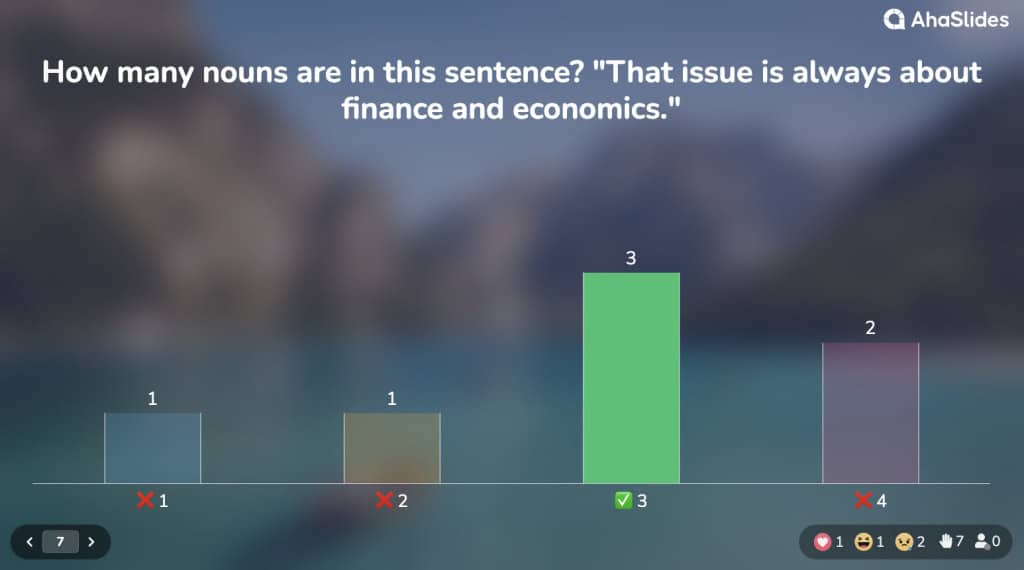
British Slang Words
- Ace – is used to describe something that is awesome. A word that is popular in the north and amongst youngsters.
- A load of tosh – is used to describe something that is not very good. For example, your lecturer might describe your essay “as a load of tosh” …. harsh!
- Bees knees – the phrase does not relate to bees or knees but is an idiom for excellent. It became popular in the 1920s along with “cat’s whiskers.”
- Bird: This is British slang for a girl or a woman.
- Bevvy - The short for the word “beverages,” usually alcoholic, most often beer.
- Bloody: As British slang, “bloody” places emphasis on a comment or another word. “That’s bloody brilliant!” for example. It is regarded as a mild expletive (swear word) but due to its common usage, it is generally acceptable. For example, “Oh bloody hell!”
- Bonkers: Can mean either "crazy" or "angry" depending on the context. Someone can be “completely bonkers” or can “go bonkers” (the latter can also mean losing your temper).
- Bollocking - You get a bollocking when you’ve done something you shouldn’t have. “I didn't do my homework and the teacher gave me a right bollocking”.
- Butcher’s hook –originates from the East End of London and is rhyming slang for taking a look.
- Can’t be arsed: A commonly used British slang sentence is “Can’t be arsed.” This is a less polite version of saying that you can’t be bothered doing something. You might also see this abbreviated to “CBA” in textspeak.
- Cheers: A multi-purpose word that can be used as a toast, to thank someone or even say goodbye.
- Cheesed off – is a quirky euphemism for being unhappy. Obviously, you would be unhappy if your cheese went off! It can be used in casual and formal situations for example someone could say “I’m cheesed off that you ate the last piece of cake.”
- Chuffed: If someone is "chuffed," they are very happy or delighted
- Dead: A common English slang word for "very", particularly in the north of England. “Did you see that bloke? He’s dead gorgeous”.
- Donkey’s years – Apparently donkey’s live for a long time so when someone says “I haven’t seen you for donkey” they are saying they haven’t seen you in a long time.
- Dodgy: Untrustworthy. A person can be dodgy but so can an object: “I think I ate a dodgy curry”.
- Easy peasy – A fun and childish way of expressing something is easy to do or understand. We dare you to use it next time your lecturer is explaining something.
- Earful – is an expression used to describe someone who is being told off. For example, you may hear someone say “They got an earful for being so loud last night.”
- Ends: London slang for the area you’re from. It’s important to represent your ends.
- Fancy: Used as a verb to show a desire for something or someone. “I really fancy her” is a profession of a love interest, but you could also ask someone: “Do you fancy some lunch?”.
- Flogging a dead horse – to try and find a solution to a problem that is unsolvable. For example: “You’re flogging a dead horse by asking Martha to move to the UK – she hates rain”
- Jokes: Used as an adjective, to mean “funny” or just “fun”. “Let’s go into town tonight mate, it’ll be jokes”.
- I’m easy – next time you are in a restaurant and your friends are debating what to order just say “order whatever. I’m easy”. That’s a signal that you’re happy with whatever they order.
- Jim jams – is slang for pyjamas and as a student, you’ll hear “I think it’s time to put on my Jim jams and get into bed – I’m exhausted!” – a lot!
- Lemon: If you think that someone looks foolish because they are shy or slow to take action, you can say that they are like a lemon. Eg: I just stood there like a lemon.
- Lush: Heard a lot in Wales but also in parts of northern England to mean "great" or "very nice".
- Leave it out – means you want someone to stop doing or saying something that you find upsetting or annoying.
- Plonker: Someone who is a bit stupid or annoying. A little bit more affectionate than calling someone a pillock. “Don't be such a plonker”.
- Shook: London street slang for "scared".
- Rosie lee – is cockney rhyming slang for a cup of tea.
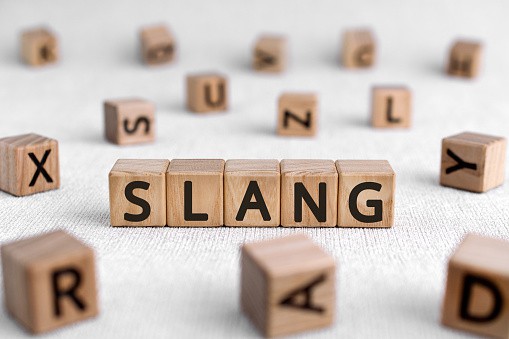
References: Oxford international English school, Wix
American Slang
- Bummer: A disappointment. Eg. “That’s such a bummer. I’m sorry that happened.”
- Chick: a word to indicate a girl or young woman. Eg. “That chick is hilarious.”
- Chill: means relax. Eg: I will go to Pari to chill for my upcoming holiday
- Cool: same as awesome, which means “great” or “fantastic.” It also shows that you’re okay with an idea that is given by others.
- Couch potato: a person who takes little or no exercise and watches a lot of television. Eg: 'It is no good you being a couch potato and having a Dobermann"
- Cram: Study like crazy. Eg: I am gonna take a history test and now I have to cram as much knowledge as possible.
- Flakey: is used to describe someone indecisive. Eg: “Garry is so flakey. He never shows up when he says he will.
- Flick: the movie. Eg: The flick Avatar is worth watching.
- Hypebeast: Someone who only wants to be popular
- I can’t even!: used without the following phrase to indicate that the speaker is overwhelmed with emotion. Eg: "This is just so ridiculously cute. I can't even."
- I don’t buy that: I don't believe it
- I’m down: I’m able to join. Eg. “I’m down for ping pong.”
- I’m game: I'm up for that. Eg: that you are willing to do it/want to do it. Eg: does anyone want to go to a nightclub tonight? I'm game.
- In no time: Very soon. Eg. “We’ll have our homework done in no time.”
- In the bag: North American word for drunk. Eg: After a long night in the pubs, he was in the bag"
- It sucked: It was bad/poor quality. Eg. “That movie sucked.”
- Lame: The opposite of cool or fantastic. Eg. “That’s so lame that you can’t go out tonight.”
- Lighten up: mean relax. Eg. “Lighten up! It was an accident.”
- My bad: means My mistake. Eg. “My bad! I didn’t mean to do that.”
- No biggie – It’s not a problem. Eg: “Thanks for tutoring me, David!” - “No biggie, Lala.”
- Once in a blue moon: means very rarely. Eg: "he comes round once in a blue moon"
- Party animal: someone who enjoys parties and party activities very much and goes to as many as possible. Eg: Sarah's a real party animal - she likes to dance all night.
- Rip-off: A purchase that was very overpriced. Eg. “That phone case was a rip-off.”
- Same here: mean "I agree". Eg: “I’m having a hard time studying for this exam.” - “Same here.”
- Score: Get what you want, or have sex with someone that you have usually just met: Did you score last night, then?
- Screw up: To make a mistake. Eg. “Sorry I screwed up and forgot our plans.”
- That's the stuff: That's really great or satisfying. Eg: Ah, that's the stuff. Nothing like a cold beer after a long day's work.
- That’s rad: That's exceptionally good, excellent, cool, or exciting. Eg: You're going to the BlackPink concert too? That's rad!
- Tying the knot: If you say two people tie the knot, you mean they get married. Eg: Len tied the knot with Kate five years ago.
- Wasted – Intoxicated. Eg. “She was wasted last night.”
References: Berlitz, takelessons, Oxford languages
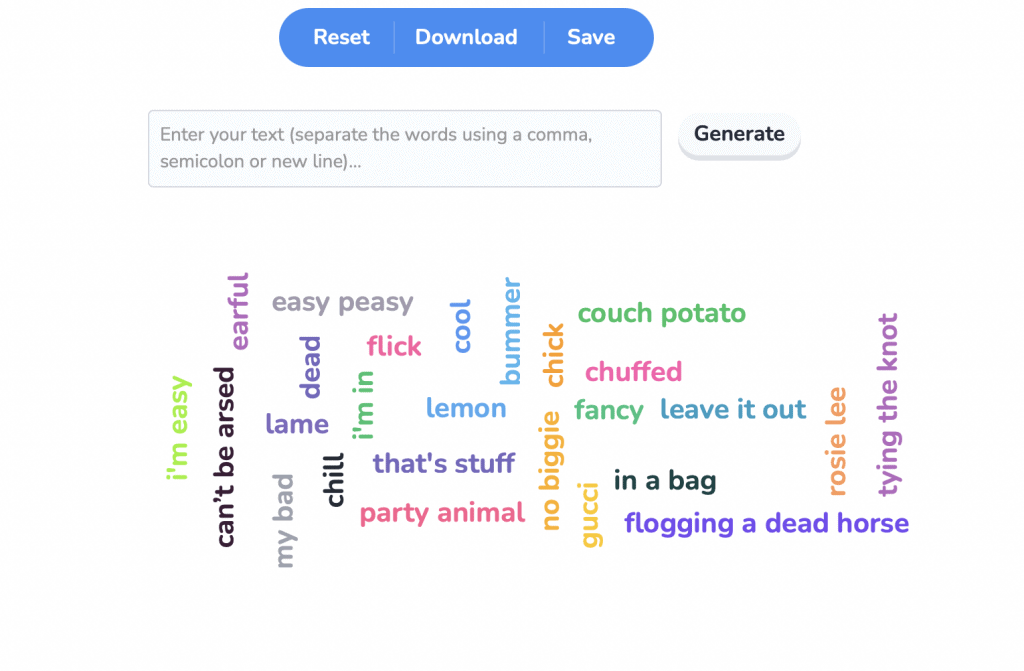
Popular Slang Words in 2025
- Lit: Used to describe something exciting, amazing, or cool.
- Savage: Referring to something harsh, brutally honest, or impressive.
- Fam: Short for "family" and used to refer to close friends or a tight-knit group.
- Yeet: Used to express excitement or enthusiasm, often accompanied by a physical action.
- Slay: To do something exceptionally well or to look amazing.
- Flex: Showing off or displaying something with pride, often related to achievements or possessions.
- GOAT: Acronym for "Greatest of All Time," used to refer to someone or something as the best in their field.
- Bae: An affectionate term for a significant other or loved one, short for "before anyone else."
- Glow up: Refers to a significant positive transformation in appearance or confidence.
- Tea: Gossip or information about someone's personal life, similar to sharing "hot" news.
- No cap: Means "no lie" or "I'm not kidding," often used to emphasize the truth of a statement.
- Thirsty: Desperate for attention or validation, especially in a romantic or social context.
- Clout: Influence or popularity, often associated with social media presence.
- FOMO: Acronym for "Fear of Missing Out," describing the feeling of being left out from an event or experience.
- On fleek: Used to describe something as perfect, flawless, or well put together.
- Vibe: Referring to the atmosphere or feeling of a situation, place, or person.
- Woke: Being aware of social and political issues, often used to describe a state of consciousness.
- Extra: Over-the-top, dramatic, or excessive behavior.
- Sis: A term of endearment among friends, regardless of gender.
- Ghosting: Suddenly ending communication with someone, especially in a romantic context, without explanation.
- Rizz: Short for charisma, this term describes someone with charm or "game."
Best Trendy Sayings in 2025
- "It hits different": Used to describe an experience or feeling that is unique or more intense than usual.
- "I'm baby": A humorous way to express vulnerability or needing care, often used in a playful context.
- "No vibes": Indicates that a situation or interaction doesn't have a positive or enjoyable atmosphere.
- "That's sus": Short for "suspicious," used to express skepticism or doubt about someone or something.
- "Big mood": A phrase to show strong agreement or relatability with something someone said or did.
- "And I oop—": An exclamation often used humorously to express surprise, shock, or sudden realization.
- "Lowkey" and "Highkey": "Lowkey" means subtly or secretly, while "highkey" means openly or with strong emphasis.
- "Periodt": Used to emphasize the finality or truth of a statement, similar to "that's a fact."
- "Chillin' like a villain": A play on the phrase "chillin' like a villain," used to convey a relaxed attitude.
- "Sksksk": An onomatopoeic expression of laughter, often used in text messages or online conversations.
- "I can't even": Used to express being overwhelmed, shocked, or unable to find words to describe a situation.
- "Send it": Encouragement to take a risk or go for something without hesitation.
- "Wrecked": Feeling emotionally or physically exhausted or drained after a difficult experience.
- "Moments": Referring to a specific situation or event that was either entertaining, awkward, or relatable.
- "It's a vibe": Describing a situation, place, or thing that has a pleasant or cool atmosphere.
- "Keep it 100": Encouraging someone to be honest and genuine in their actions or statements.
- "Vibing": Enjoying or feeling good about the current moment or situation.
- "Yasss": An enthusiastic affirmation or agreement, often used to show excitement or support.
- "Stay woke": Advising others to stay aware and informed about social and political issues.
- "I'm dead": Expressing extreme laughter or shock, often used in response to something funny or surprising.
Gen Z Slang - Best Slang Terms
Check out the top 20 modern slang from our Gen Z and Alpha!
- "Simp": Used to describe someone who is overly attentive or submissive to someone they're attracted to.
- "Glow up": Refers to a positive transformation in appearance, confidence, or lifestyle.
- "Savage": Describing something that's cool, impressive, or brutally honest.
- "Finsta": A private or fake Instagram account where users share more personal or unfiltered content.
- "Cancel" or "Cancelled": Refers to rejecting or boycotting someone or something due to perceived offensive behavior.
- "Vibe check": Playfully assessing someone's current emotional state or overall mood.
- "Flex": Showing off or bragging about one's achievements or possessions.
- "Clout": Influence, popularity, or recognition, often gained through social media.
- "Cap": Short for "lie," often used to call out someone for not telling the truth.
- "Tea": Gossip or information about someone's personal life.
- "On fleek": Describing something that's perfectly done or looks great.
- "No cap": Similar to "for real" or "truthfully," used to emphasize honesty.
- "FOMO": Acronym for "Fear of Missing Out," referring to the fear of not being included in an event or experience.
- "I'm baby": Humorous way to express vulnerability or needing care.
- "GOAT": Acronym for "Greatest of All Time," used to describe someone or something at the top of their game.
- "Yeet": Exclamation of excitement or energy, often accompanied by a physical action.
- "And I oop—": Expression of surprise, shock, or realization, often used humorously.
- "TikTok" or "TikToker": Referring to the social media platform TikTok and its users.
- "FOMO": Fear of Missing Out, describing the anxiety of feeling left out from an event or experience.
- "Brain rot": The state of feeling mentally drained by low-effort entertainment or social media.
The Bottom Line
Basically, there is no way to speak like a native if you don't add some English slang words to your vocabulary list. Learning new words is more challenging if you don't practice them so often.
For learners, educators, and trainers, you can leverage the Word Cloud game to help you build cool and fancy language learning and teaching programs.
Frequently Asked Questions
Why are slang words created?
Slang words are important for informal communication, expressing identity, keeping language dynamic, expressing emotion or attitude, create in-group bonding and generation gap and rebellion.
What is the difference between British and American slangs?
British and American slangs differ due to variations in culture, history, and regional influences, including key influences like vocabulary, spelling and pronunciation, cultural references, regional variations and idiomatic expressions. It's worth noting that slang is constantly evolving, and new terms emerge over time, so the differences mentioned above may not apply universally or may change with evolving language trends.
What are stereotypical British things?
Stereotypical British things often include British humor, tea, royalty, accents, politeness, red double-decker buses, fish and chips, big ben, rainy weather and lots of sports!
What are stereotypical American things?
Stereotypical American things normally include the American flag, fast food, baseball, superheroes, pickup trucks, BBQ, American footballs, and Thanksgiving!
